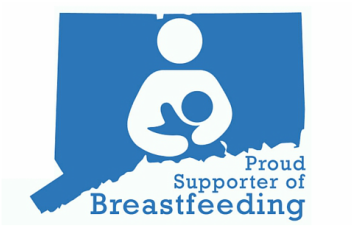Health Care
Specific Actions regarding health care were reviewed according to the Surgeon General’s Call to Action on Breastfeeding. Kathleen Mason, Chair of the Healthcare Committee and The 10 Step Collaborative, finds that by working in a CT Baby-Friendly Designated Hospital, She has found that many of these actions are relevant to the hospital setting as well as the community. Lawrence & Memorial Hospital was the 8th hospital in the state to achieve this prestigious designation.
If you are a healthcare clinician in a CT Hospital and would like to join the monthly 10 Step Collaborative Support Meetings, please join the CBC as a member today. Current members interested can be updated with the alternating phone conference and in-person meeting schedules by contacting Kathy Mason via email.
If you are a healthcare clinician in a CT Hospital and would like to join the monthly 10 Step Collaborative Support Meetings, please join the CBC as a member today. Current members interested can be updated with the alternating phone conference and in-person meeting schedules by contacting Kathy Mason via email.
Action Steps from the SGCTA
Strategies from the SGCTAHelp hospital work together to achieve BF designation
|
Breastfeeding & The Hospital Birthing ExperienceYou have choices in your birthing experience. If you choose to deliver at a hospital, Baby-Friendly designation means that the maternity care staff are specially trained to enhance the bonding and breastfeeding experience from evidence-based practices. You can expect standards of care such as skin-to-skin right after birth, encouragement to begin breastfeeding initiation within 1 hour of birth and having your baby room-in with you (as well as the other support in the 10 Steps to Successful Breastfeeding). Connecticut is leading the way in the proportions of births in Baby-Friendly designated hospitals. The CBC is actively working on increasing the number of hospitals obtaining designation.
For more information on Baby-Friendly Hospital Initiative, click here. Ban the Bag: How Formula Marketing Impact Breastfeeding RatesMothers who receive formula samples are less likely to breastfeed exclusively and breastfeed for shorter periods of time. Studies have shown that women who receive commercial discharge bags containing infant formula are more likely to stop breastfeeding sooner than those who don’t receive these samples. The link between formula samples and reduced breastfeeding is well-documented.
Recognizing the dangers of formula marketing, the World Health Organization (WHO) established the International Code of Marketing of Breast-milk Substitutes in 1981. The Code states that manufacturers of infant formula should not provide samples of products to pregnant women and mothers. Healthcare facilities are not to be used for the marketing of infant formula brands. Through efforts of the Massachusetts Breastfeeding Coalition,Ban The Bags, aims to remove formula marketing from hospitals. For more information or to have your hospital listed, register here. |

